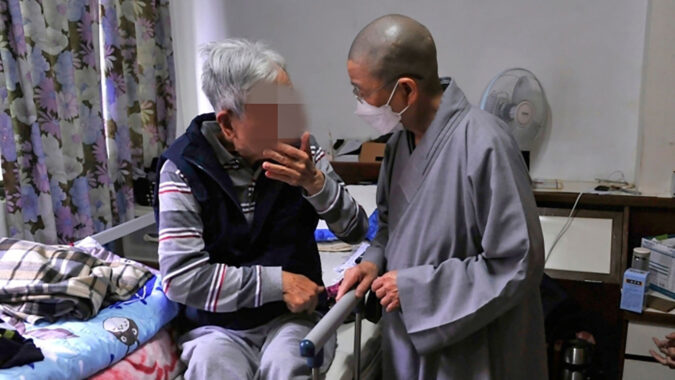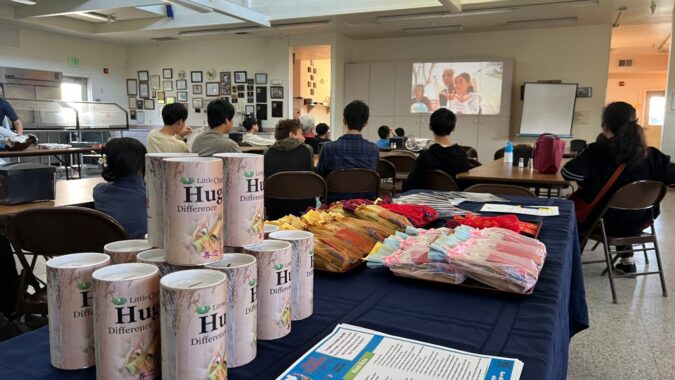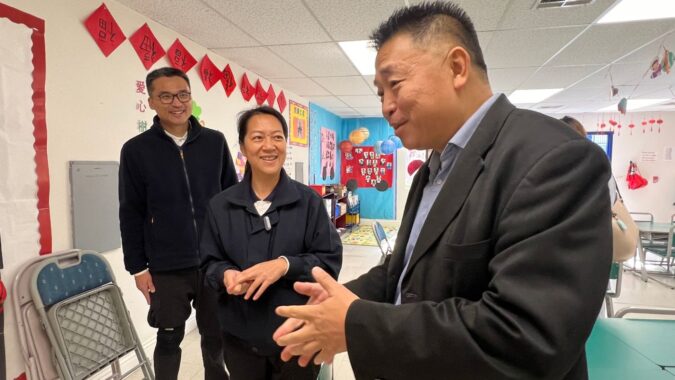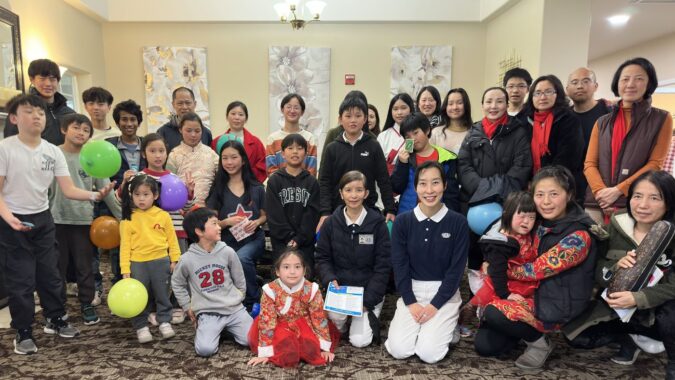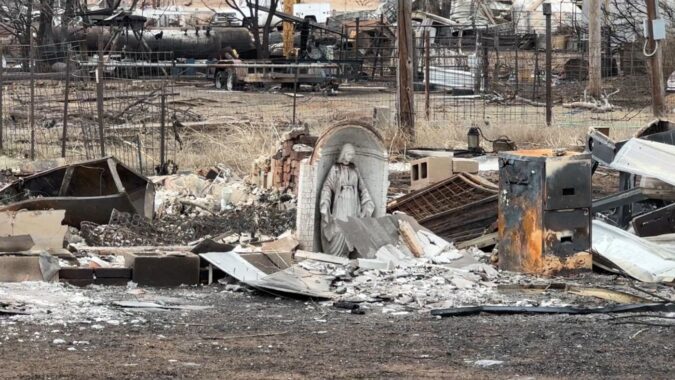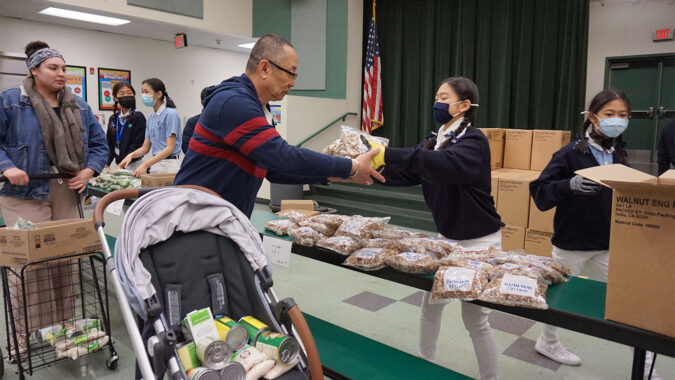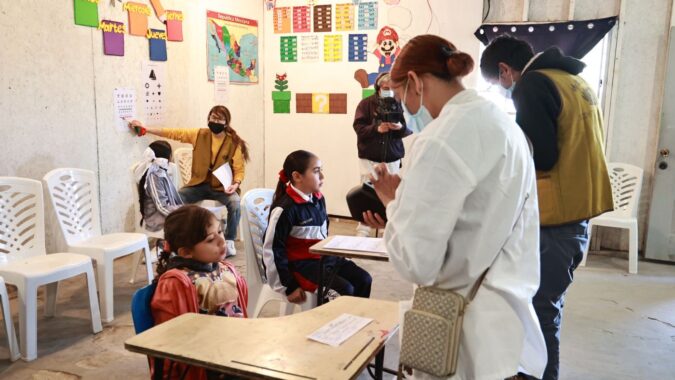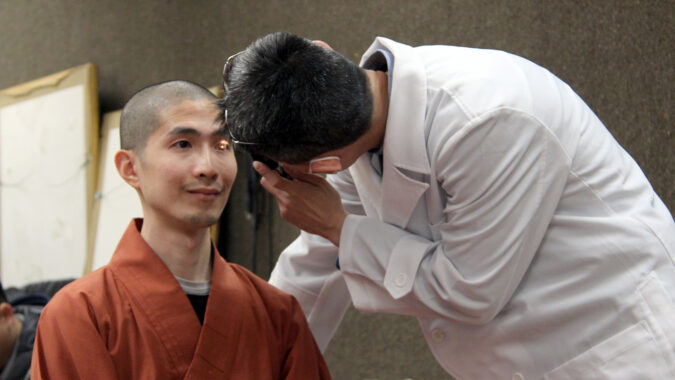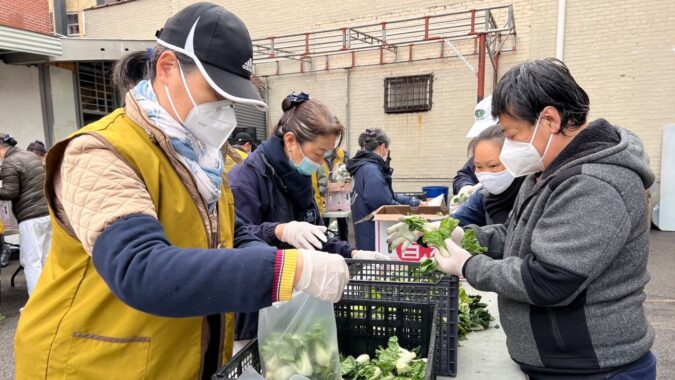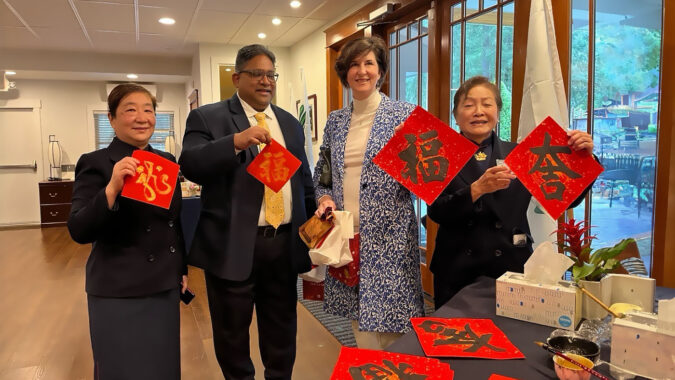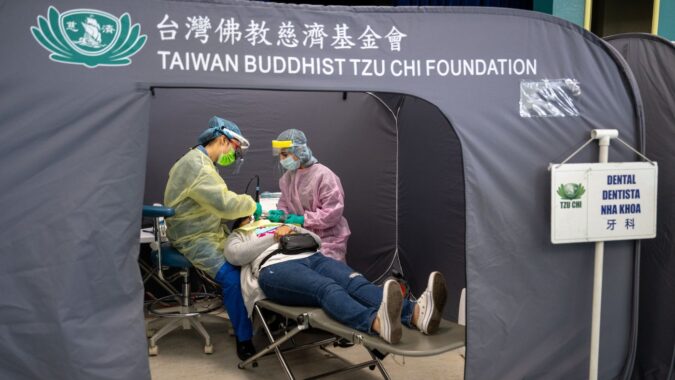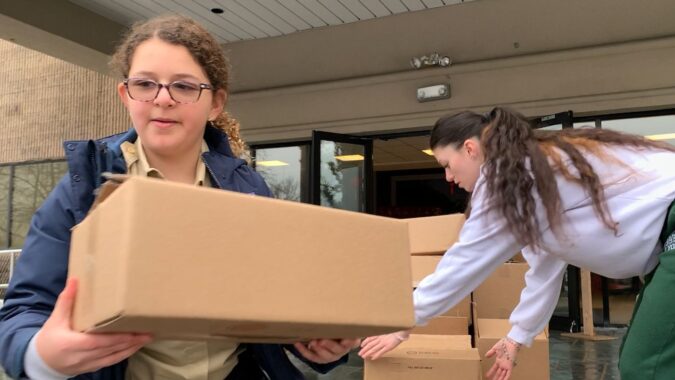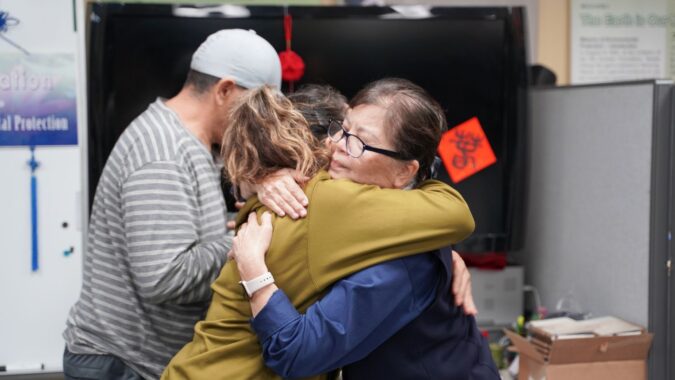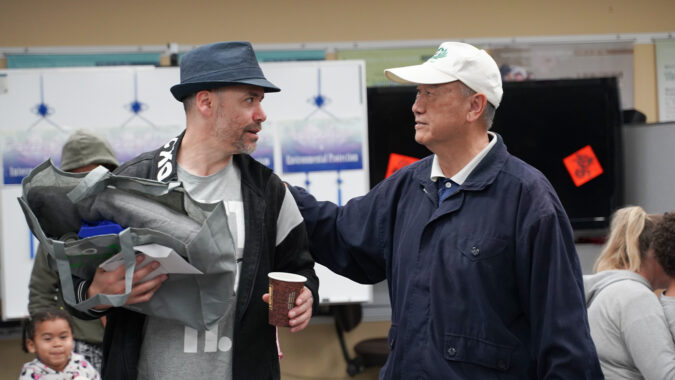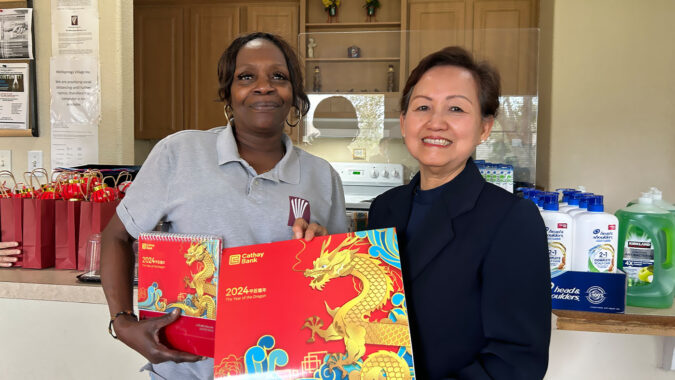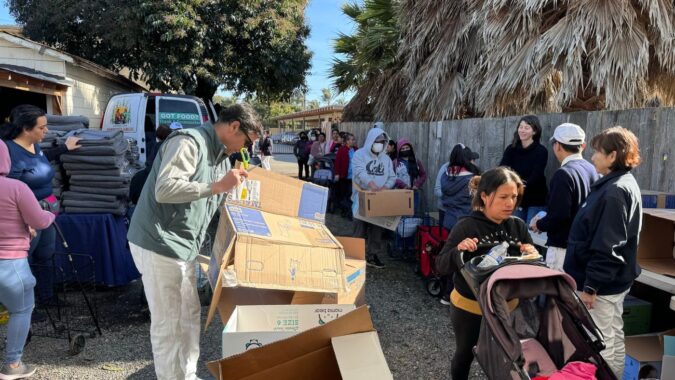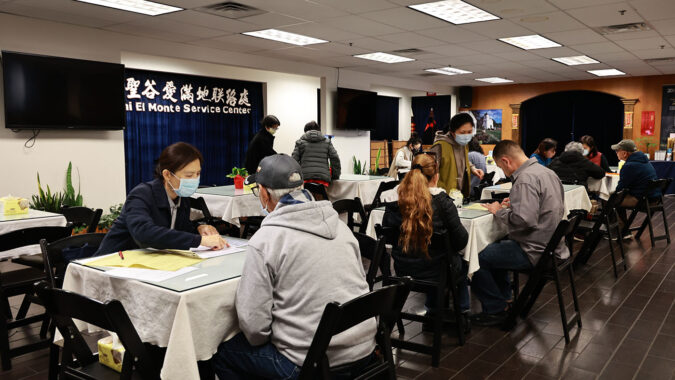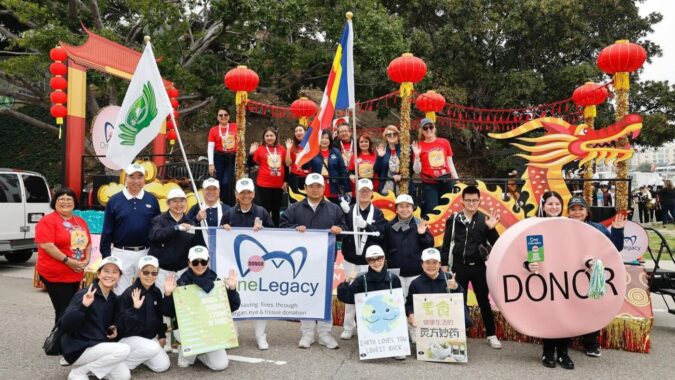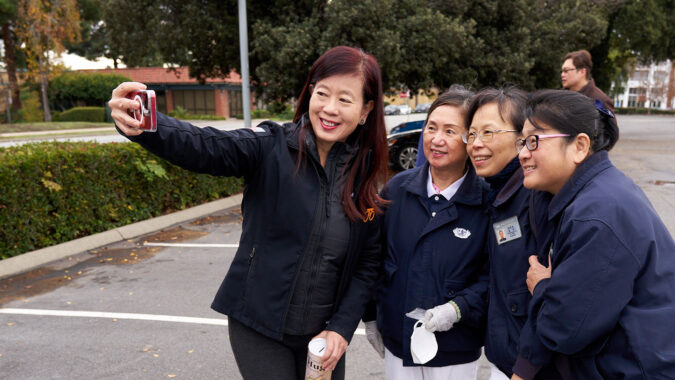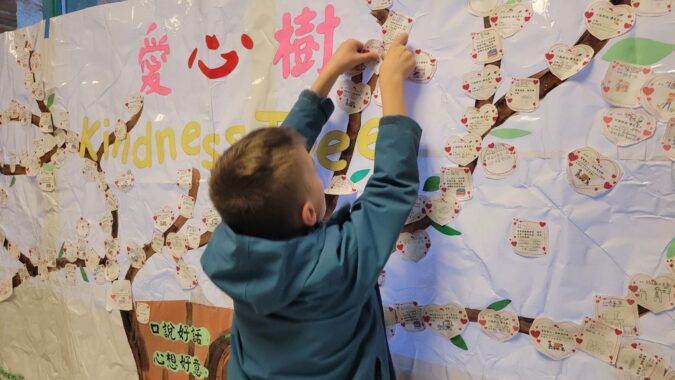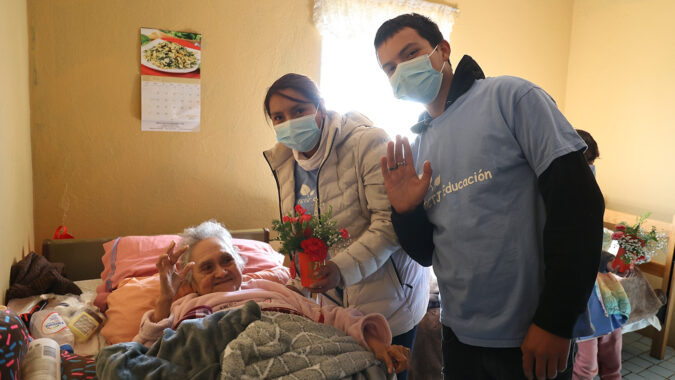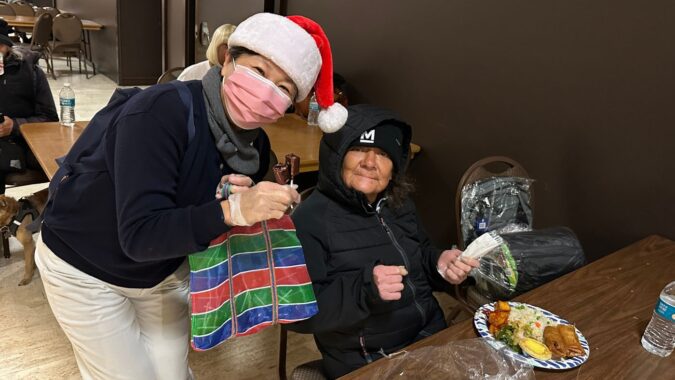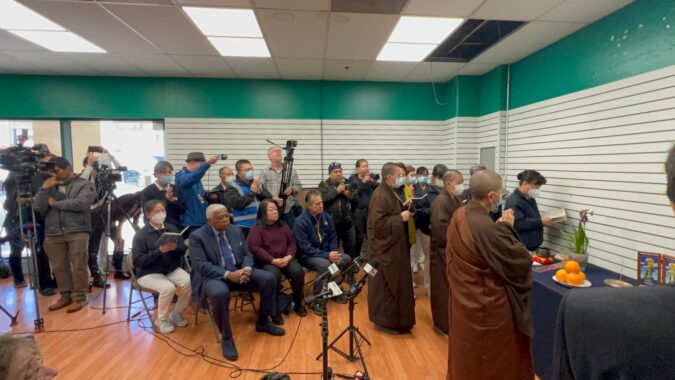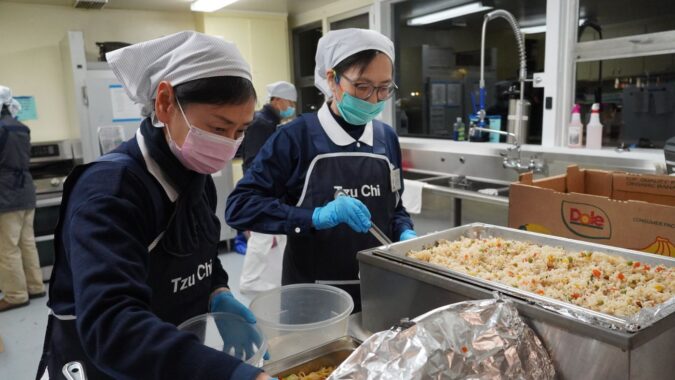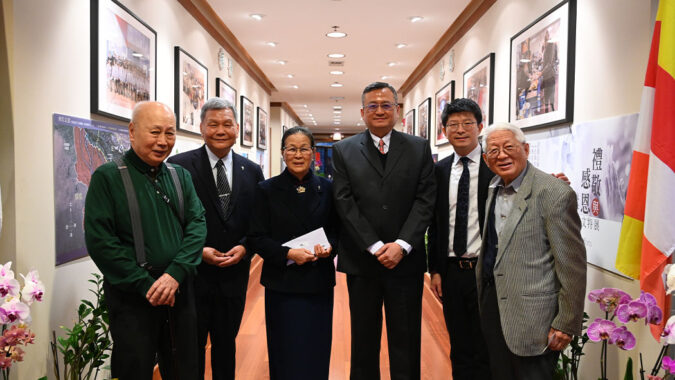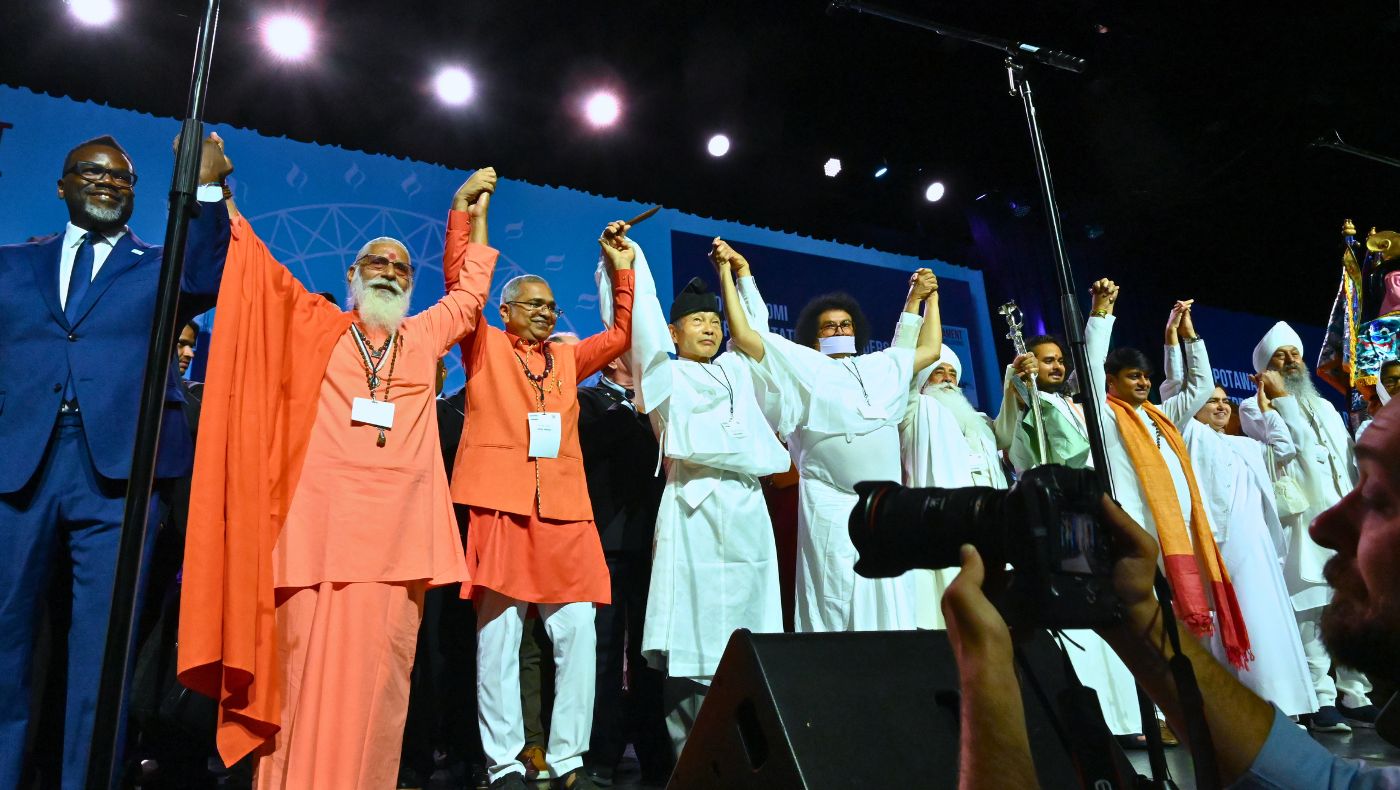
Written by Ida Eva Zielinska
The theme of the 2023 convening of the Parliament of the World’s Religions (PoWR) is
“A Call to Conscience: Defending Freedom & Human Rights.” The Program Chair, Rev. HPs. Phyllis Curott, in her pre-PoWR address, stated:
Every faith has, at its core, a summoning to ease the suffering of others and to contribute to a just, peaceful, and sustainable world. Today, the Parliament of the World’s Religions issues its Call to Conscience to people of faith and spirit, to the people of Chicago, to all people of conscience, to stand together in defense of the dignity, freedom, and human rights of all.
The Program Chair
Rev. HPs. Phyllis Curott
And on Monday, August 14, people of faith and spirit from Chicago and around the world showed up. A long line snaked along the edges of the massive reception area of the McCormick Place Lakeside Center to register, and when each PoWR attendee did, they received a mint green conference tote bag.
The bags are actually a gift from Tzu Chi, and produced from recycled Polyethylene terephthalate (PET) plastic bottles, using DA.AI Technology. Attached is a name tag with a Jing Si Aphorism from Master Cheng Yen printed on it. Inside the bag, apart from the PoWR Program, Tzu Chi added a pen made from PET plastic bottles. From the first moment they arrived, Master Cheng Yen had made a connection, even if not immediately noticed.
To launch the Opening Ceremony of the 2023 PoWR, a procession of representatives of many religions and indigenous peoples paraded into the main hall, then assembled on stage. At their heels, a Dragon Dance followed, the long train of dancers weaving through the aisles as cymbals and drums echoed loudly created a powerful energy in the space. A procession of men in traditional Scottish garb marched down another aisle, their bagpipes joining in a novel chorus of sounds, a fitting symbol of cross-cultural and faith mingling.
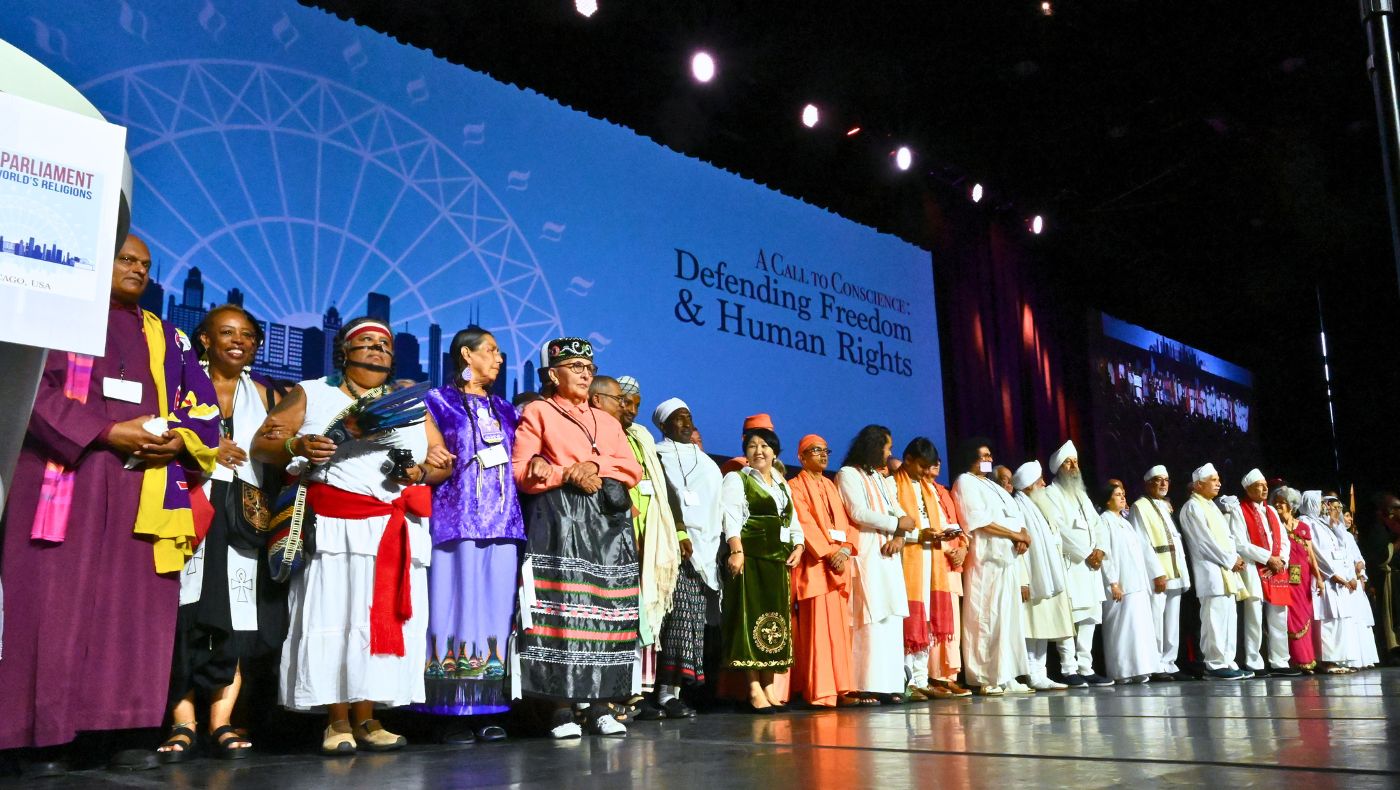
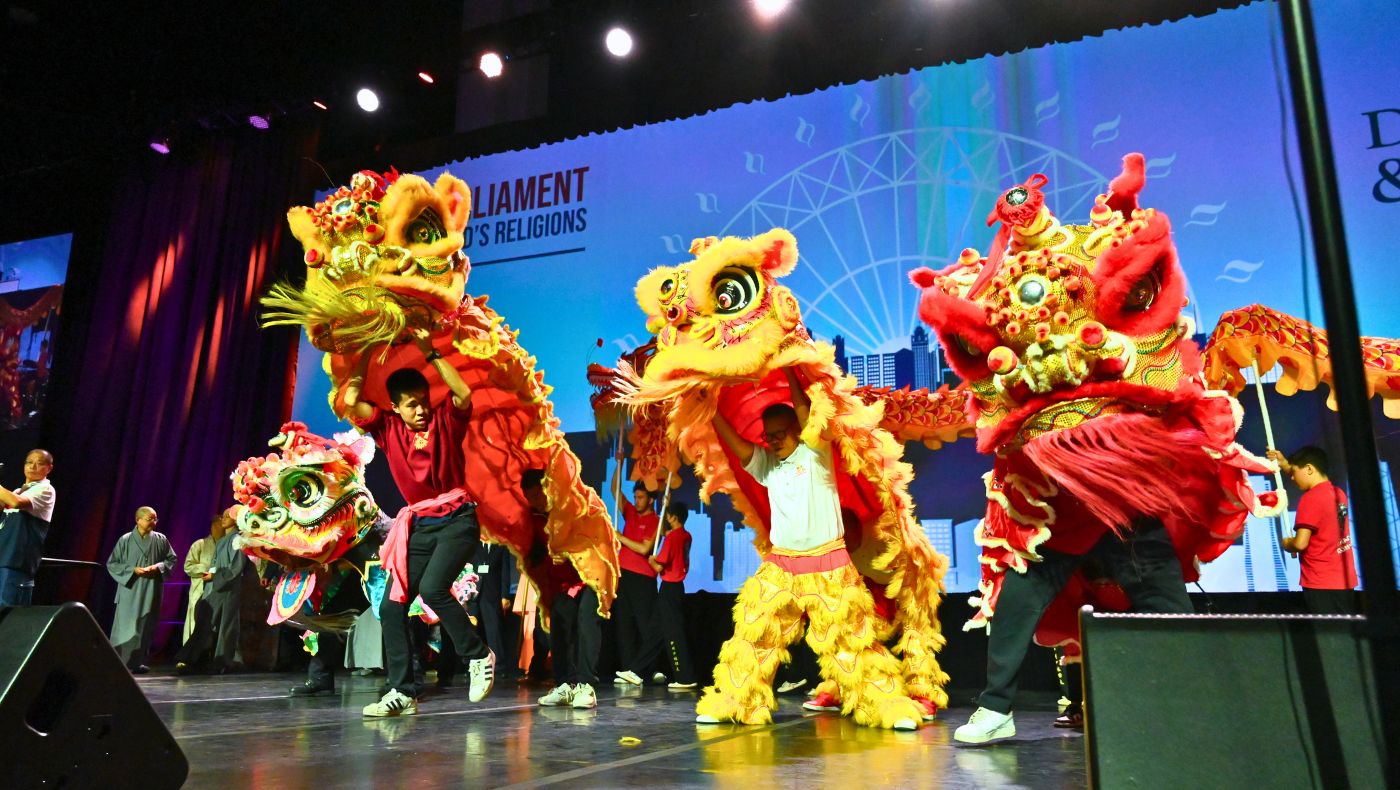
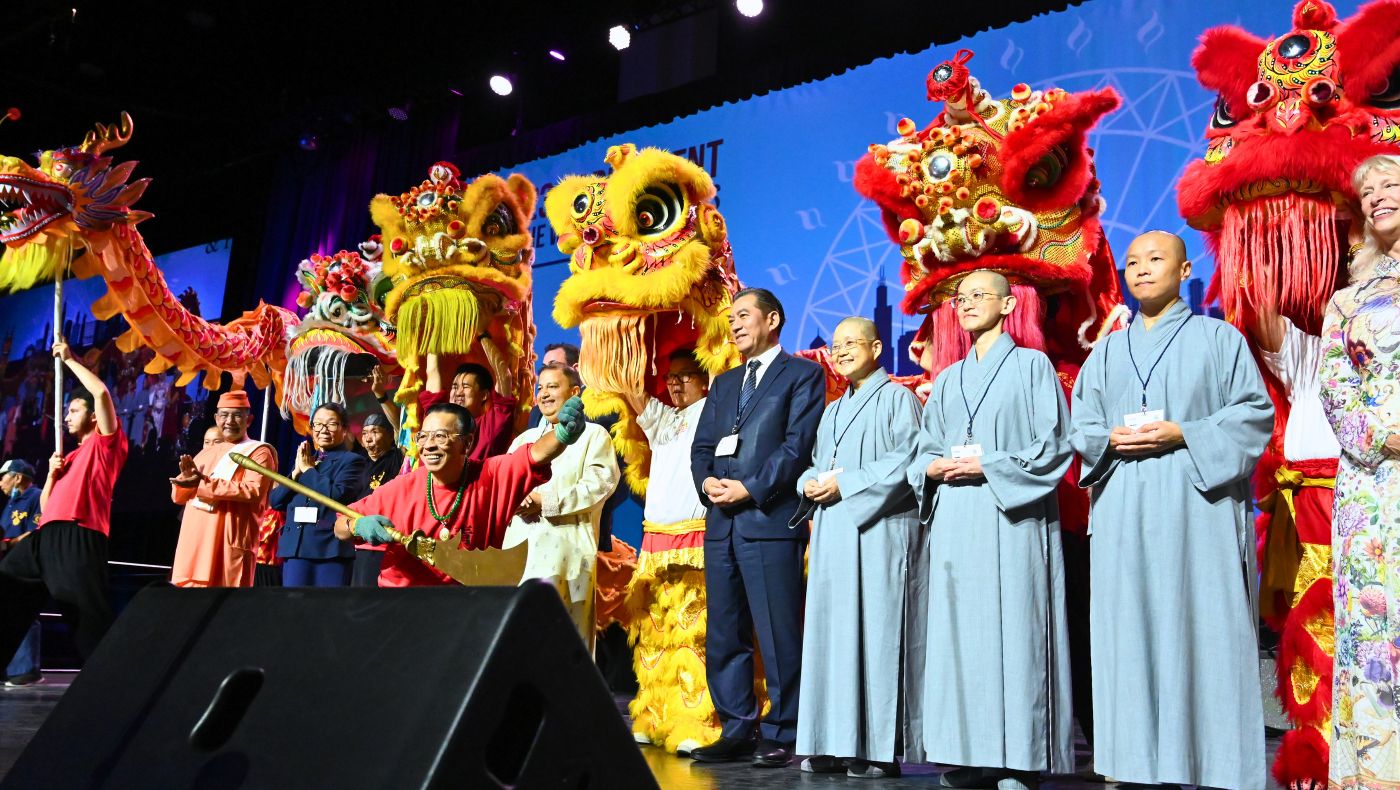
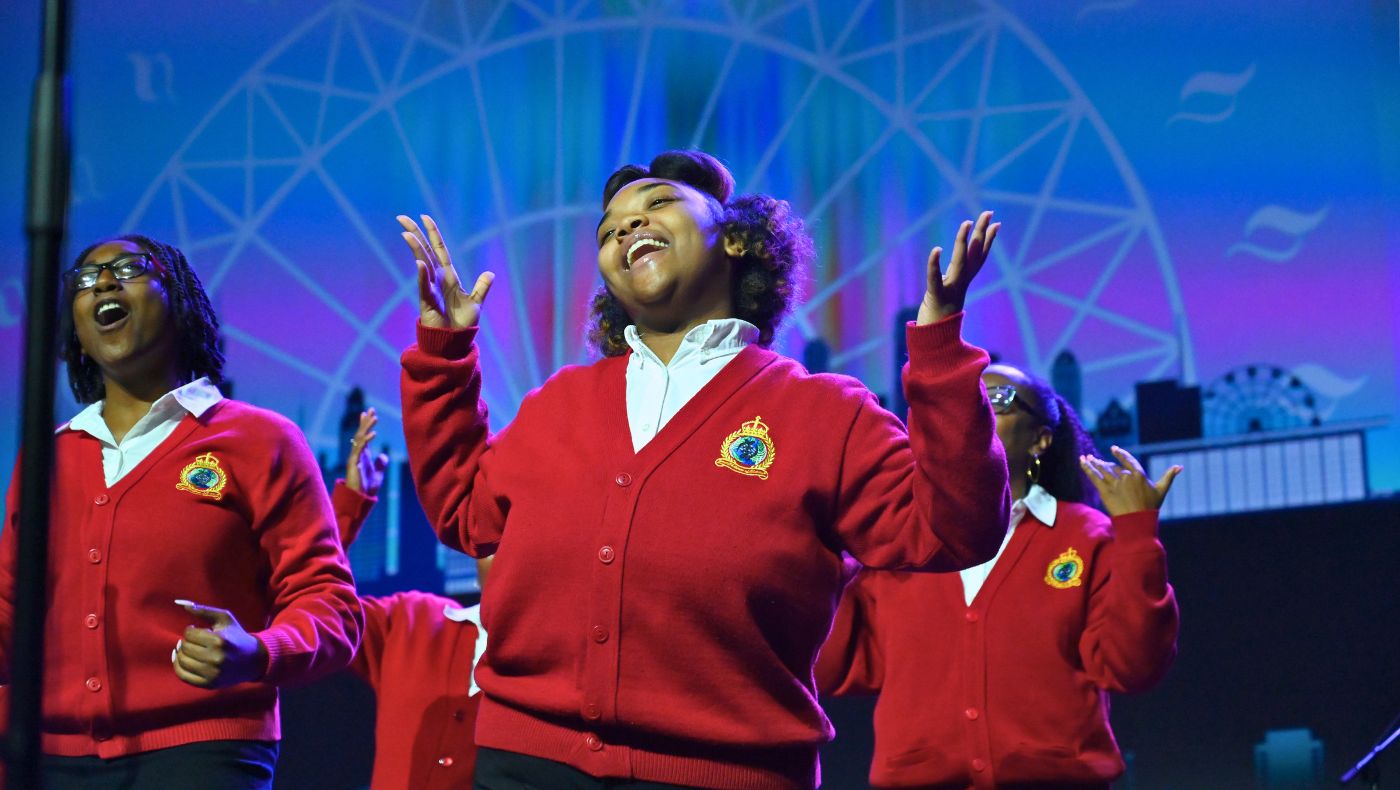
Diverse faith traditions gather together for this momentous event, each ready to shine a light upon their works and share in a brighter tomorrow. Photo/Dennis Lee
“In Chinese tradition, the lion and dragon represent prosperity, fortune, and peace,” Dr. Rey-Sheng Her, Deputy CEO of the Buddhist Tzu Chi Charity Foundation, had a moment to share with the audience. Those wishes resonated within the PoWR opening addresses by Indigenous Peoples’ elders, faith leaders, representatives of international and faith-based organizations, dignitaries, and others.
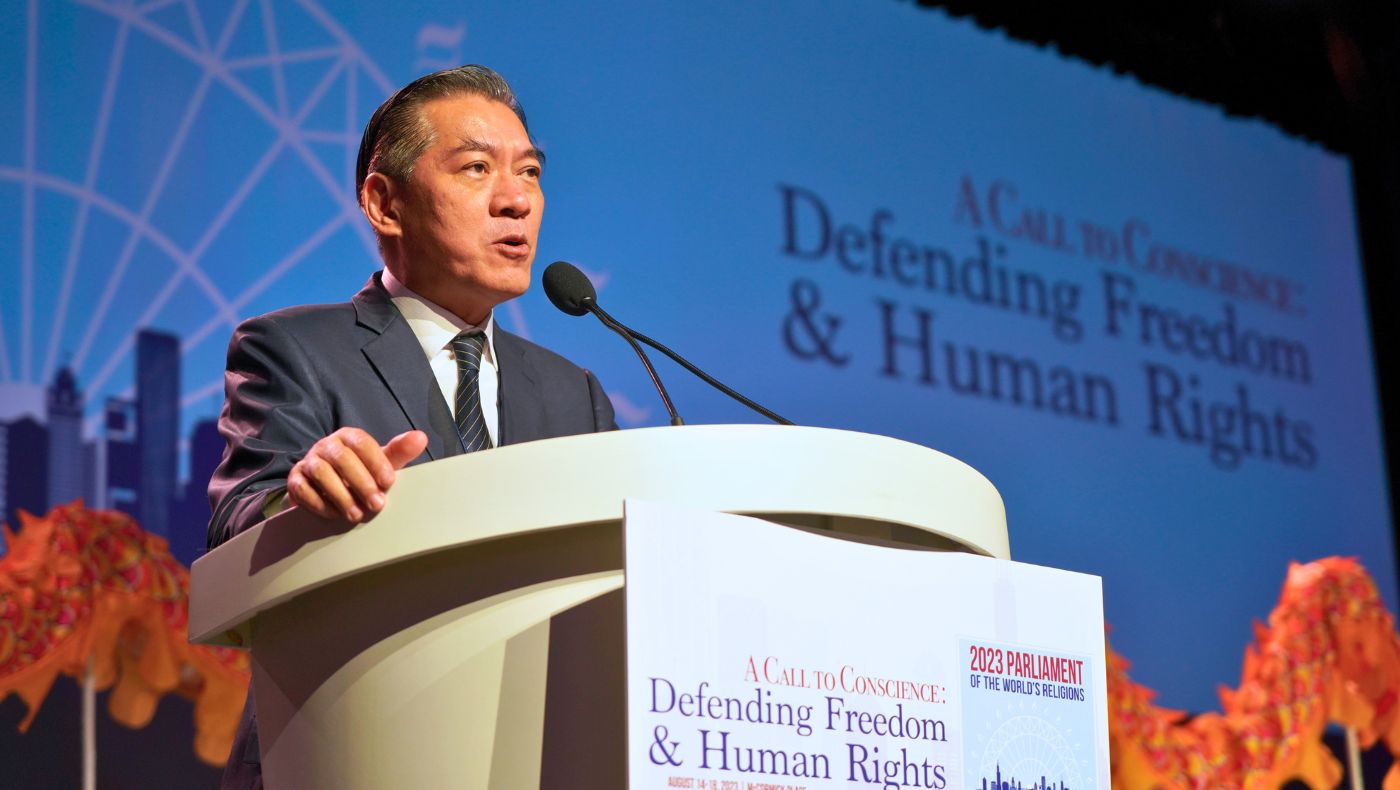
Chicago Mayor Brandon Johnson gave a powerful speech that went to the heart of the conference. “Your spiritual traditions have the power to guide people to a path of peace and nurture a spirit of mutual respect and collaboration,” he said.
The urgency at this moment requires us to not just simply rely upon the recitation of scriptures and our sacred books, but it requires us to demonstrate the most incredible act and power known to humankind, and that is the act of love.
Brandon Johnson
Mayor of Chicago
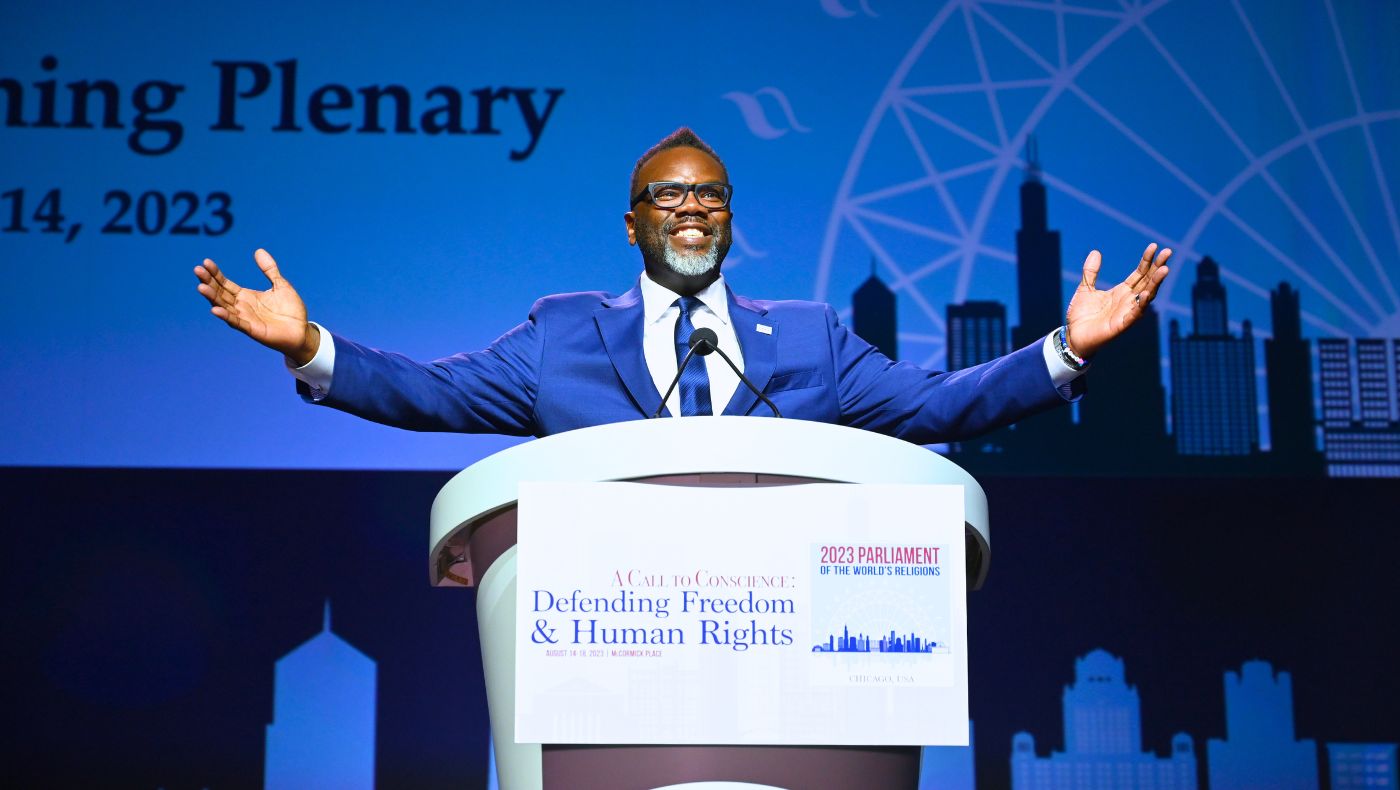
Celebrating the Global Ethic
A core component of the PoWR’s work is promoting the Global Ethic “a landmark declaration of the Parliament of the World’s Religions stating the universal values and principles shared by the world’s religious, spiritual, and cultural traditions. Though it emerged from consultations with scholars and religious leaders from many of the world’s religions and regions, the Global Ethic (GE) is a statement of basic ethical commitments shared by people throughout the globe, religious or not.”
The principles of the GE are rooted in the 1948 Universal Declaration of Human Rights of the United Nations and aim for “the full realization of the intrinsic dignity of the human person, the inalienable freedom and equality in principle of all humans, and the necessary solidarity and interdependence of all human with each other.” The GE presents this through five directives or commitments, namely, to a culture of:
- Non-violence and Respect for Life
- Solidarity and a Just Economic Order
- Tolerance and a Life of Truthfulness
- Equal Rights and Partnership Between Men and Women
- Sustainability and Care for the Earth
In 2023, the PoWR was celebrating the 30th anniversary of the document, and at the Global Ethic Assembly that was next on the PoWR’s program, several attendees, including Tzu Chi Dharma Master Shih De Yuan, signed the document.
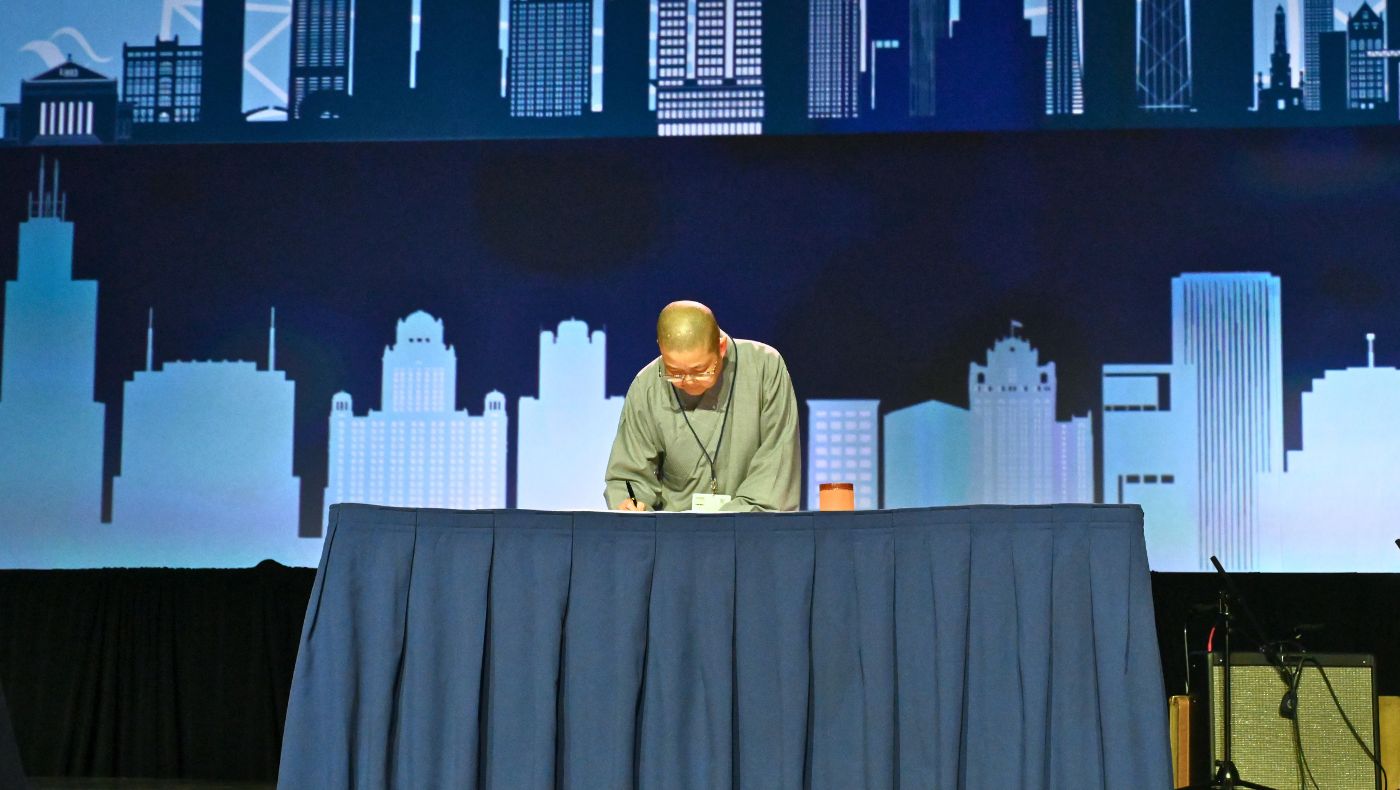
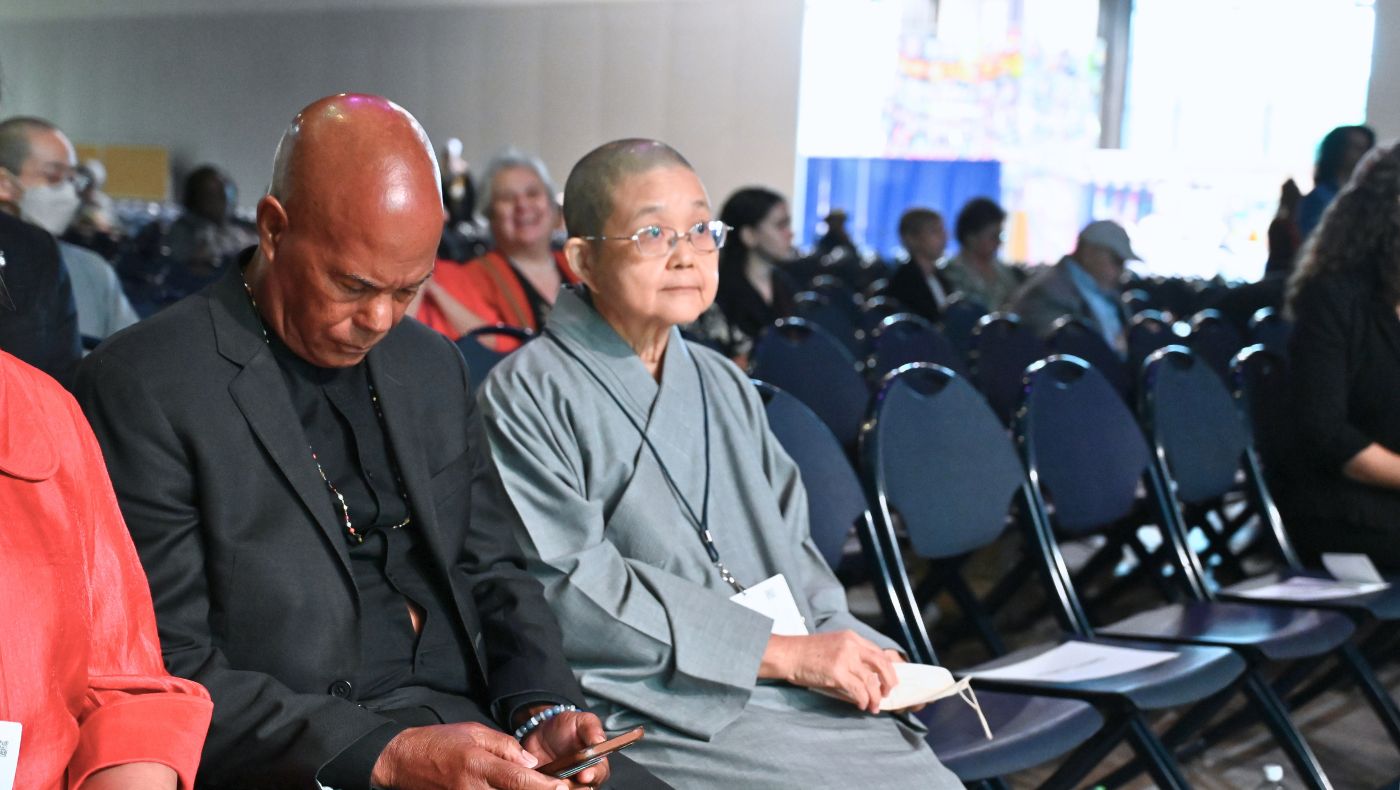
Tzu Chi Dharma Master Shih De Yuan signs the Global Ethic (GE), a landmark declaration of the PoWR. Photo/Dennis Lee
A Call for Climate Action
That afternoon, the opening Climate Action Assembly offered a comprehensive discussion of the biggest threats facing our planet today, with clear and impactful ways for one to take action to help save the Earth. As part of the assembly, the Tzu Chi delegation and our three Dharma Masters came on stage to lead a Buddhist prayer presented in song. In the background, a video illustrated Tzu Chi volunteers in action offering charity relief, especially after disasters worldwide. It was a moving call to action since natural disasters are increasingly frequent and related to climate change.
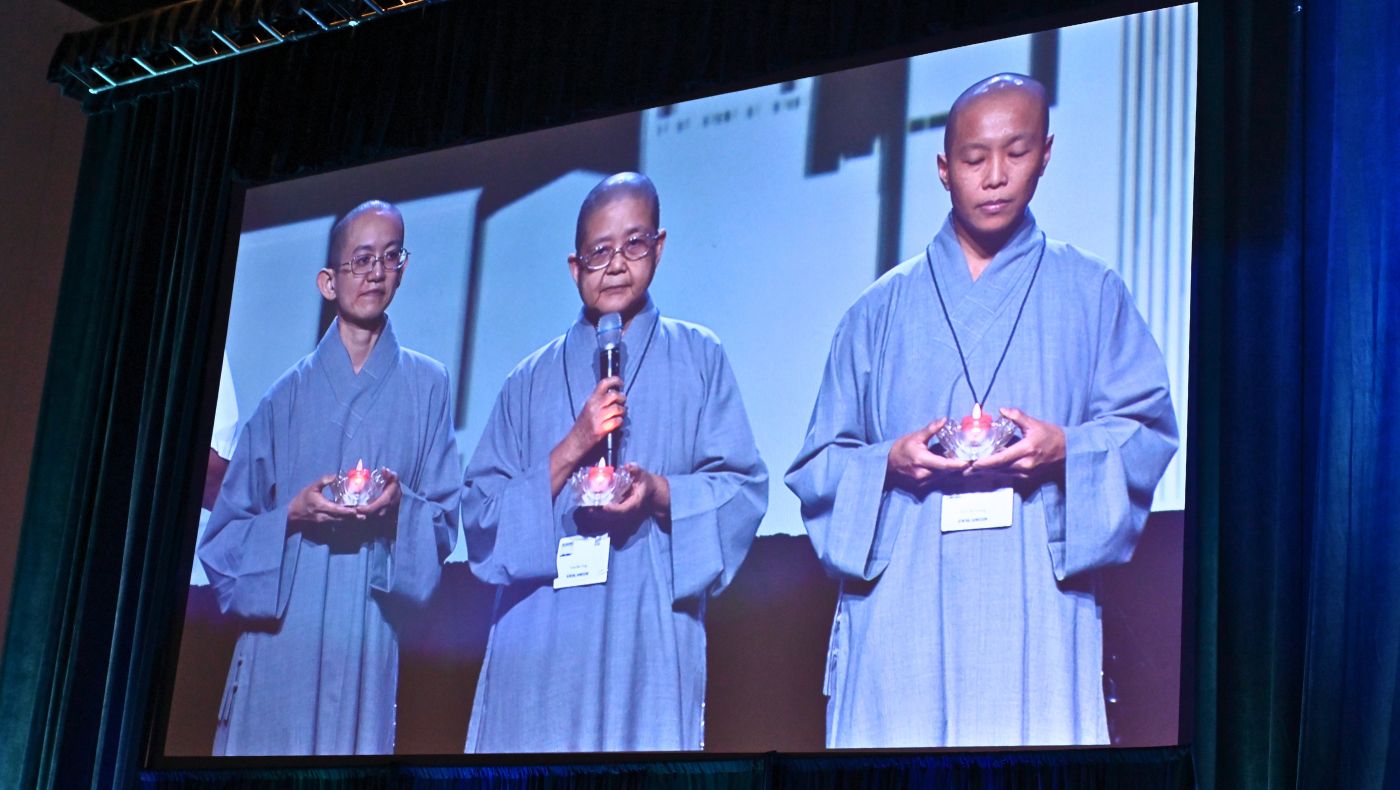
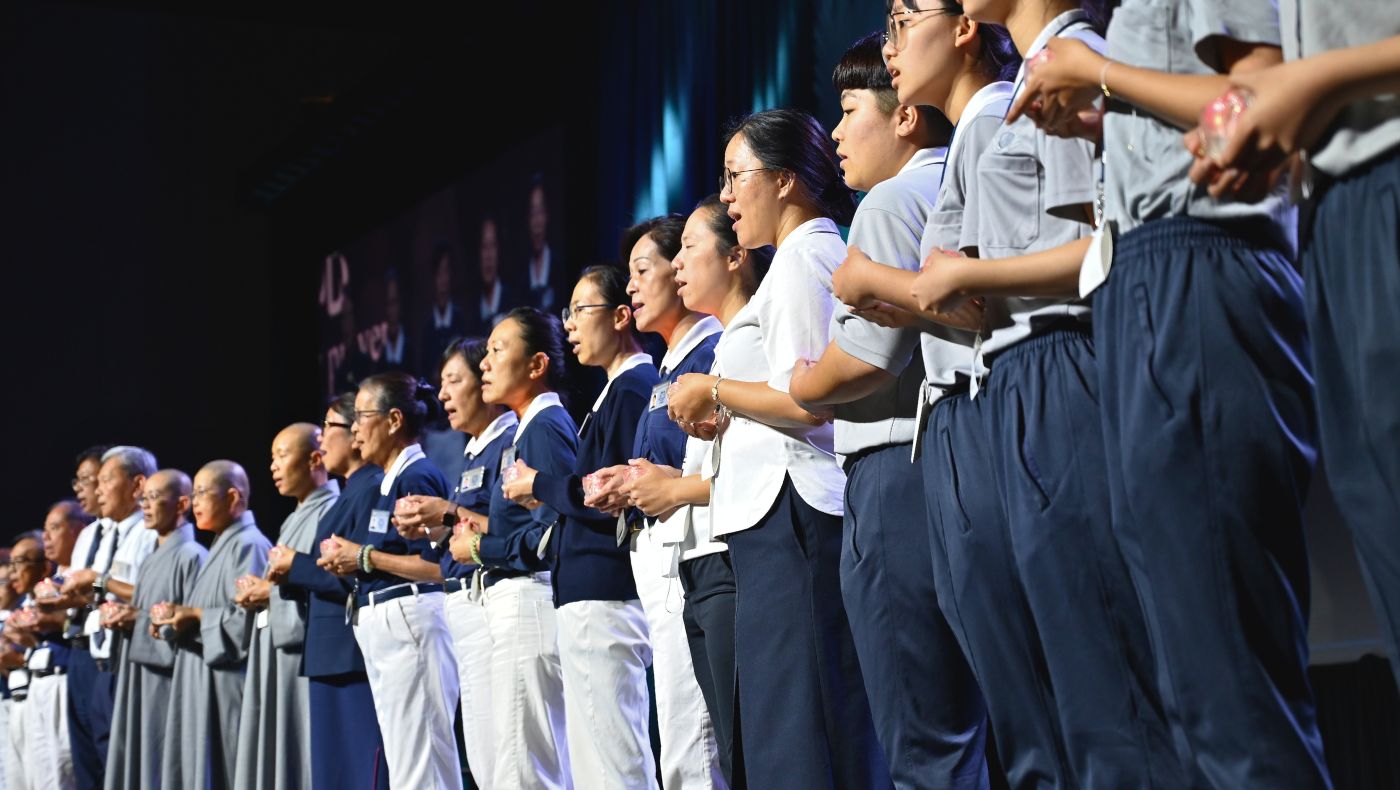
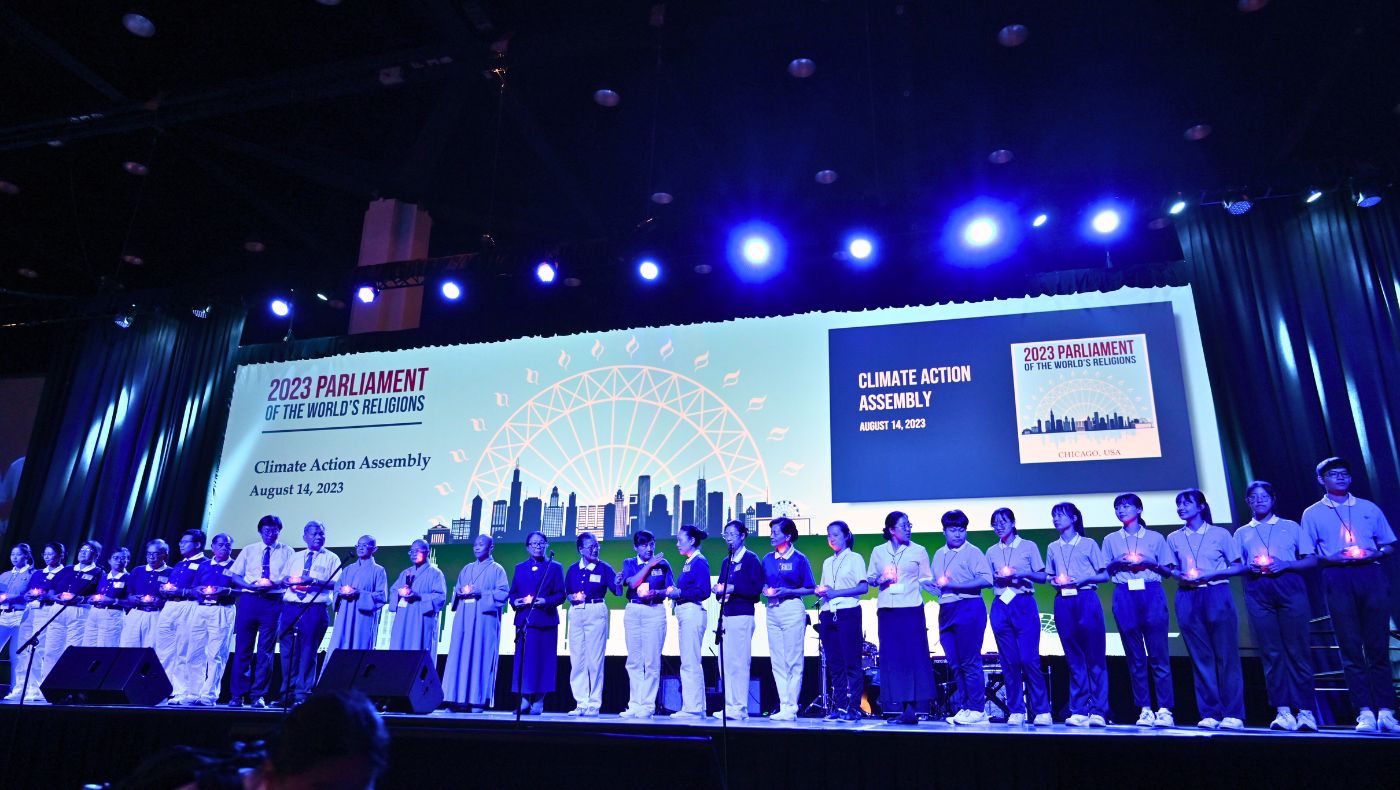
The Tzu Chi delegation and our three Dharma Masters lead a Buddhist prayer presented in song. Photo/Dennis Lee
Tzu Chi’s first parallel session of the PoWR, “In the Era of Worsening Disasters, Strengthening Climate Resilience,” continued the conversation around climate change issues. The panel reflected on how faith-based organizations can work within their communities to build climate resilience, strengthen collaborations with disaster relief agencies, amplify the response to crises, and ease recovery.
The audience discovered how as climate change’s impacts continue accumulating, marginalized communities already at risk of increased adversity and vulnerability to extreme weather events struggle to adapt and survive. Proactive partnerships and collaborations, with a whole society approach, are required. Sandy Lu from the Buddhist Tzu Chi Charity Foundation moderated as three panelists shared their experiences on the topic.
Austin Chu from UNICEF USA highlighted that climate change impacts the most vulnerable populations, children being among them; thus, “if you care about children’s wellbeing, you must care about the climate crisis.” Chu then outlined UNICEF’s Sustainable Response, which will be released soon, and explained that at UNICEF, “we see faith-based organizations as having the same values as we also work on.” In fact, Tzu Chi played a consultative role in its formulation. Chu then gave several examples of UNICEF’s response initiatives.
Lucy Cummings from New York Disaster Interfaith Services (NYDIS) spoke about why faith sector collaboration is so essential, as it: Provides critical services at all stages of emergencies; increases capacity; builds trust; strengthens communication; and saves money.
She stressed how one must adopt a whole-community approach and work at that level, “neighbor helping neighbor.” Cummings revealed how the faith sector addresses “unmet needs,” filling the gap after government support ends. Furthermore, “we have a critical role as the faith sector to help people prepare.”
Alex Tan from Tzu Chi University revealed Tzu Chi’s Four Stages of Disaster Relief – Emergency Relief, Intermediate Relief, Total Defense, and Livelihood Recovery. He also outlined Tzu Chi’s Six Disaster Relief Principles – Directness, Respect, Gratitude, Focus, Pragmatism, and Timeliness. Then, as Tan used the example of aid for Syrian refugees in Türkiye, the audience saw how the continuity of assistance from emergency to long term is beneficial in helping rebuild lives after disasters or displacement.
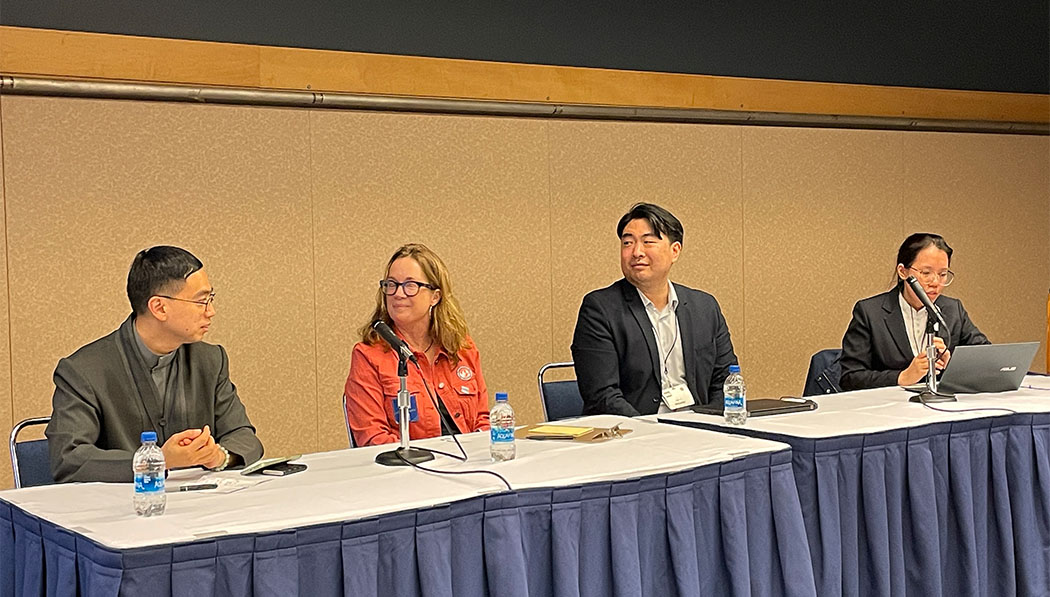
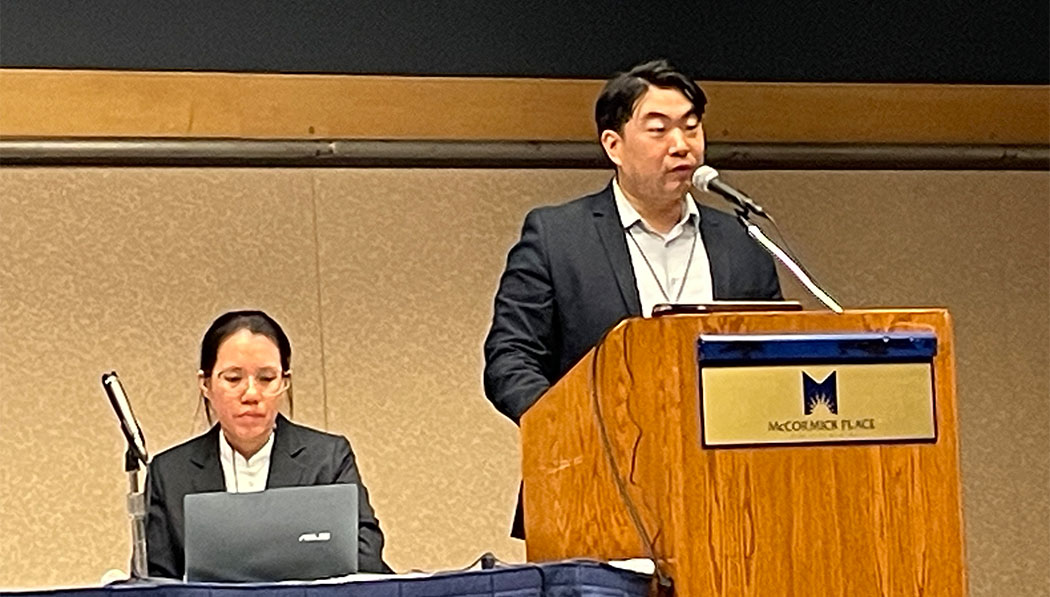
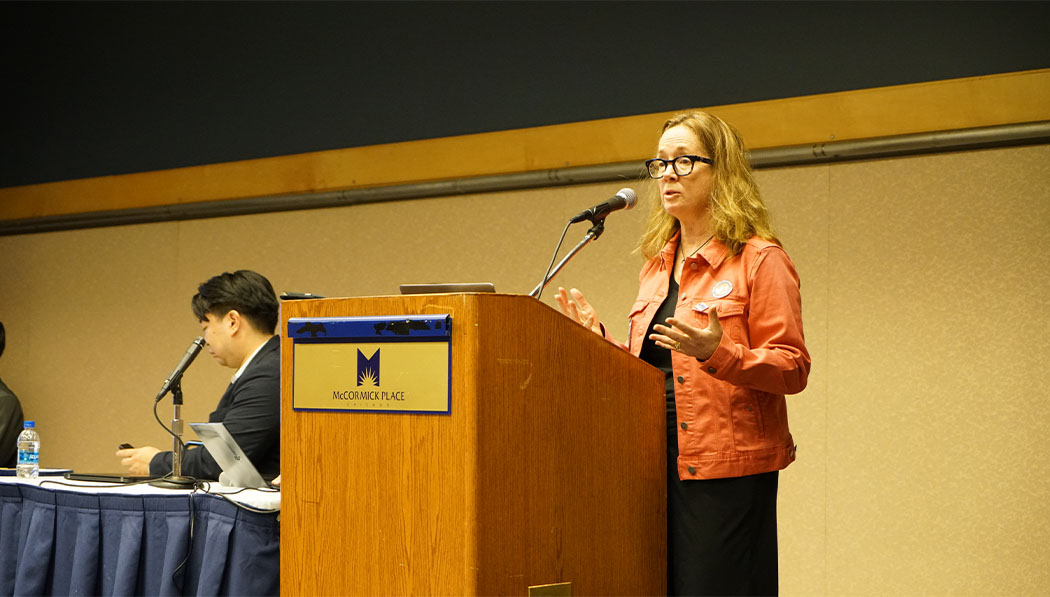
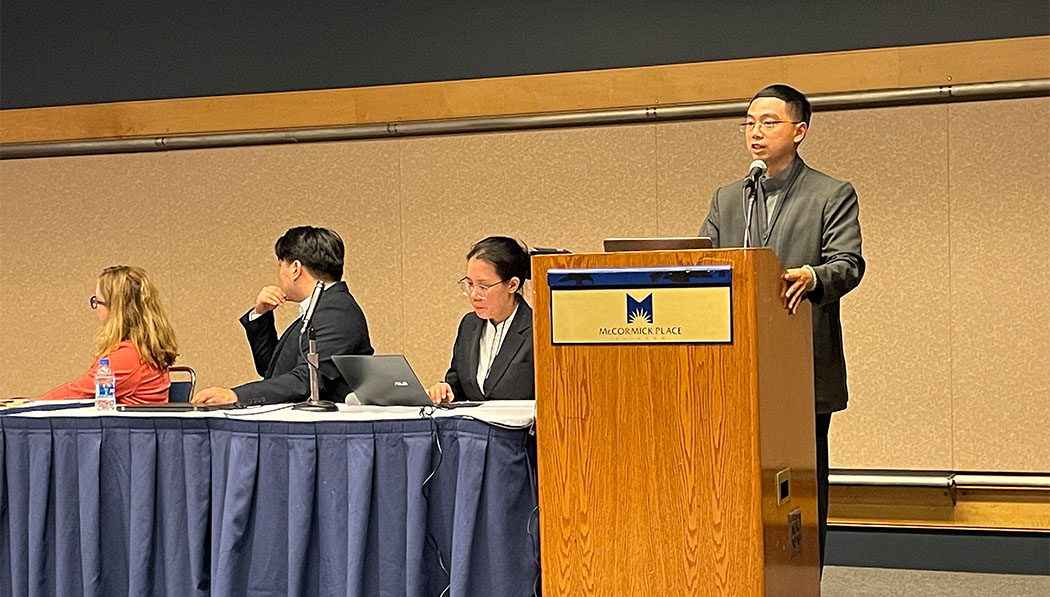
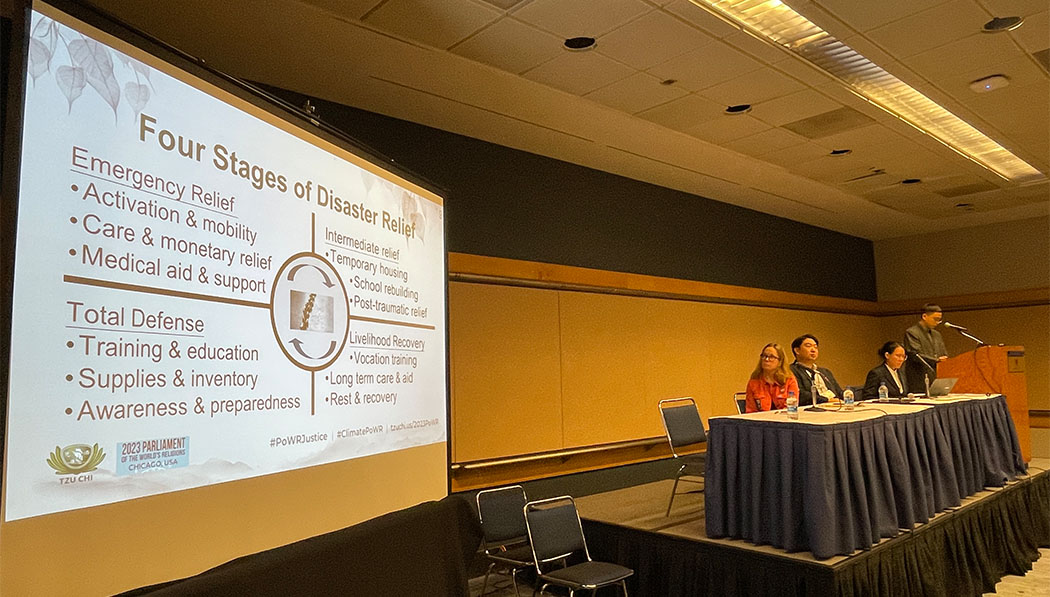
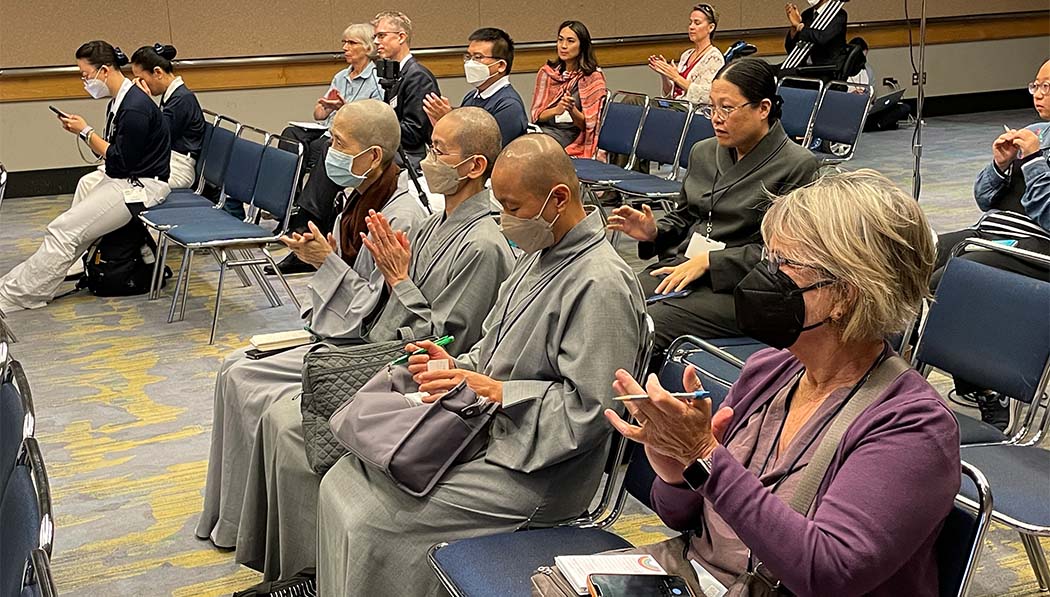
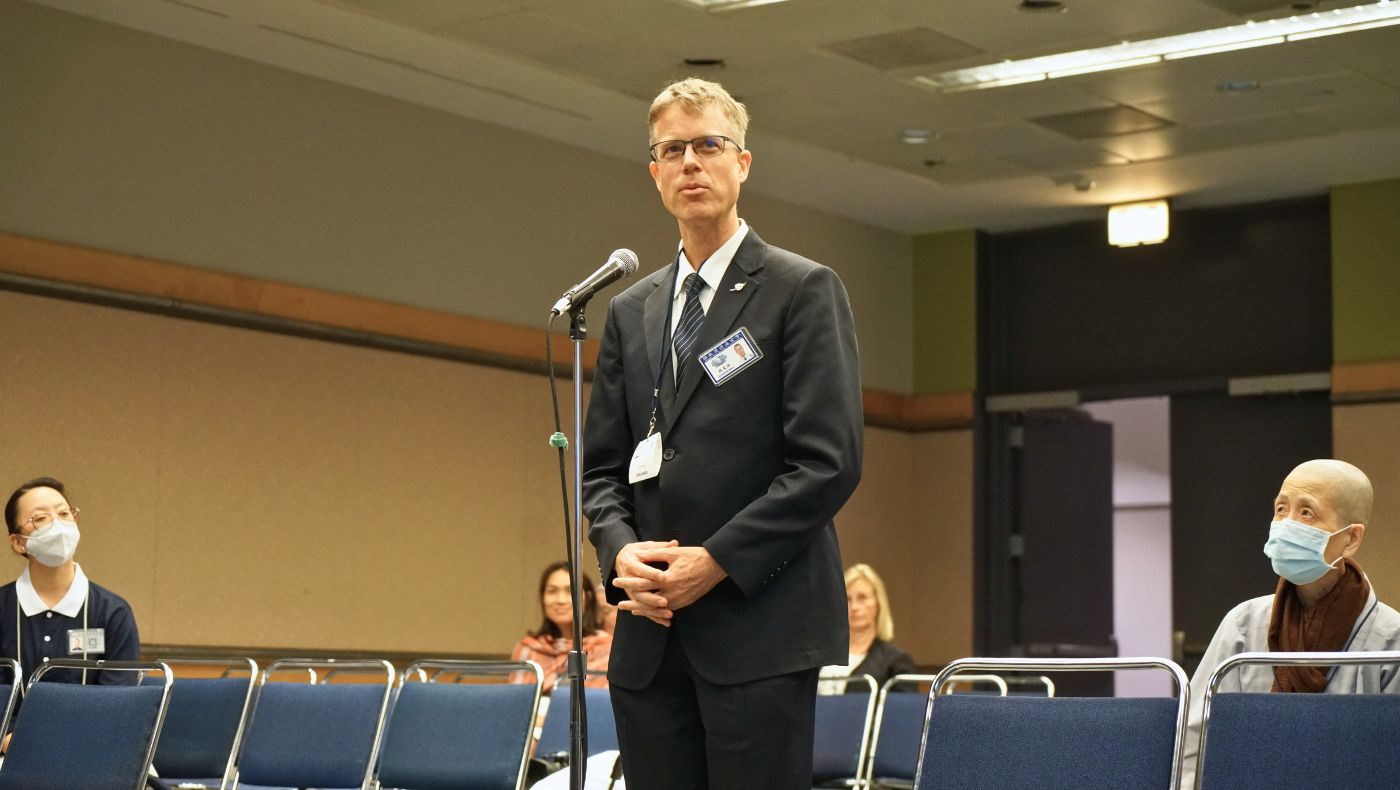
Tzu Chi’s first parallel session of the PoWR, “In the Era of Worsening Disasters, Strengthening Climate Resilience,” reflects on how faith-based organizations can work within their communities to build climate resilience. Photo/Dan Ferrara
In conclusion, faith-based organizations, in responding to and building preparedness for disasters, provide unique contributions to communities, from emotional and spiritual care to innovative methods of empowering communities through guidance and facilitation of resilience development and the cultivation of inner strength.
A Call for Climate Action
Finally, to round out the day, Tzu Chi’s second session, “Can the Global Ethic Meet the Challenge of Intergenerational Interfaith Work,” was a workshop moderated by Kaleb Nyquist, a PoWR Board of Trustees member. He asked participants to divide into groups, and examine challenges to society’s adoption of the Global Ethic’s central tenets. Dr. Rey-Sheng Her, Deputy CEO of the Buddhist Tzu Chi Charity Foundation, and Debra Boudreaux, Tzu Chi USA CEO, were also part of this interactive listening session.
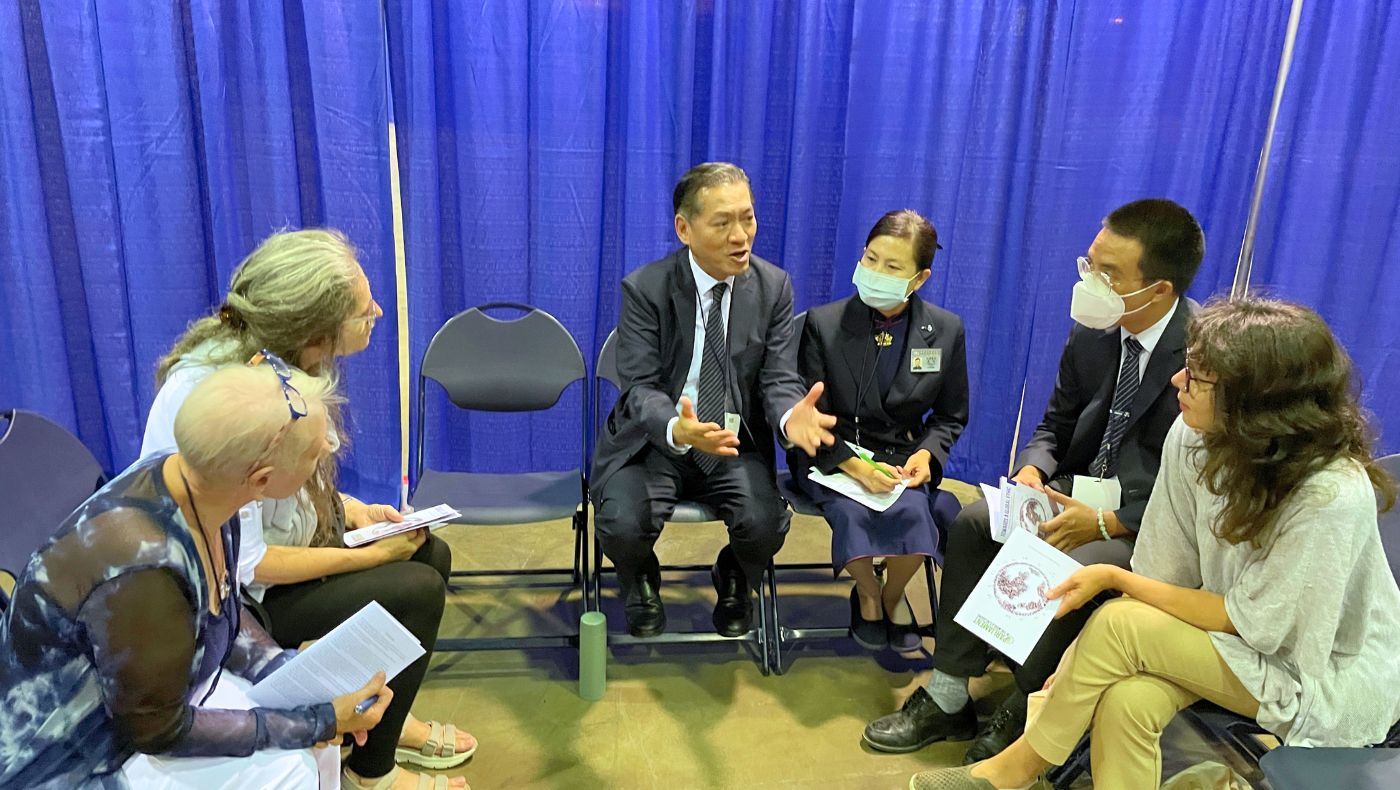
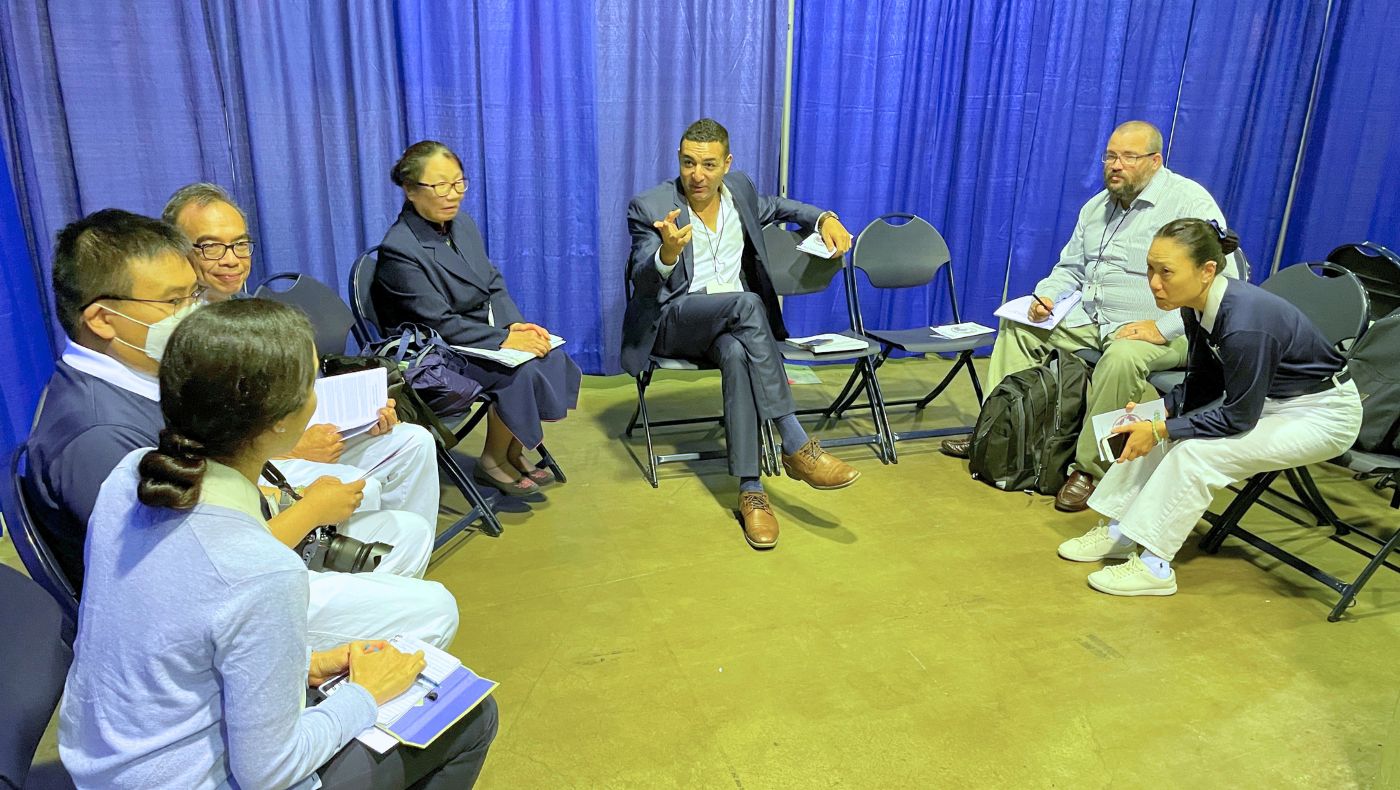
Participants divide into groups and examine challenges to society’s adoption of the Global Ethic’s central tenets. Photo/Jennifer Chien
During the discussion, one participant pointedly observed that a lack of imagination crisis poses a fundamental challenge. He explained that “one person cannot possibly imagine what it is like to walk in the shoes of another.” Perhaps we can view this as a collective and individual lack of empathy that can potentially sabotage the success of Global Ethic’s adoption and implementation.
Read about Tzu Chi’s presence on Day 2 of the Parliament of the World’s Religions in our next blog.

